Some learning is best done in a group setting where the interaction becomes part of the learning process. This set of workshops are designed for the player who would like to study a particular subject whether it’s a technical foundation, a more organized practice or how to overcome performance anxiety. These workshops are for players of all levels and have very few requirements for participation. (They are even available to non-local students via SKYPE). And they are fun! Please scroll down to find the workshop that you’re interested in taking.
The group workshops offered in the Kritzer Studio are relatively small, informal, and tailored to the needs of the students. Each workshop is offered once per year and space is limited so early registration is advised.
Each workshop comes with written and video instructions. In most cases you’ll also get a ‘Practice-along-with-Scott’ video as well. Often questions come in the days following a class. You can email me or better yet, post your questions on the forum for the benefit of the other students. If you have any questions about the appropriateness of the class or what will be required of you please feel free to contact me.
Registration
Class sizes are kept small and early registration is suggested. You can send a non-refundable deposit of $75.00 to hold your spot in the class. Full registration fees are required one month prior to the first day of class.
Below is a list of workshops offered throughout the year.
Performance Anxiety Rehab (PAR)
Even the best practice can be undermined by the affects of performance anxiety. In this popular workshop we’ll learn to reshape the values that drive this anxiety, develop new habits and practice techniques to overcome the affects of this debilitating issue. This is open to all musicians.
- Causes of Performance Anxiety/Changing the Rules
- The Role of Practice and How the Mind Works
- Performance Anxiety Rehab Tools (Primary Tools)
- Performance Anxiety Rehab Tools (Secondary Tools)
- Setting Practice & Performance Directives & PAR PODS
- Performance
Dates: Saturdays September 10th, 24th, October 22nd and November 5th, 2016. 2-4 pm PDT. Quarterly PAR PODS TBA
Cost: $195
Class Size: 6-8
Music Theory for the Classical Guitarist
A thorny subject to be sure but the guitarist who learns how music works will find the learning, practicing and performing repertoire to be much more effective Understanding the theory of music will help the student understand they music they are studying. Theory is an important tool in the aid of memorization as well as interpretation. Using Aaron Shearer’s Theory Workbook Scott will guide students through each chapter where students will learn how to build major and minor scales, how to identify intervals, build chords and understand chord progressions. Finally, we’ll take a few pieces from the repertoire and test your skills at analyzation. (Music Theory for the Classical Guitarist is a suggested pre-requisite for How to Memorize Music, as well as work Music Interpretation).
- Building Major and Natural Minor Scales – Week of September 12th
- Building Harmonic and Melodic Minor Scales-Week of September 26th
- Identifying Intervals
- Intervals (Review)
- Chords – Week of Nov 7th
- Harmonic Progressions
- Using Your Theory Skills
Time: Summer 2012
Cost: $195
Class Size: 5-8
How to Memorize Music
Clear memorization leads to fewer mistakes in practice and performance. Memorizing music systematically will decrease confusion and error while learning, practicing and performing a piece of music. Each student will learn one work from the course work as well as a work of his or her choosing in a clear and effective approach to first reading and then memorization by breaking down the form of the work, learning the rhythm, fingerings and notes primarily off the instrument.
- Simple Analysis
- Pre-Reading Technique
- Reading Technique
- Memorization Technique
- Beginning Practice Directives
Time: Summer 2012
Cost: $195
Class Size: 5-8
Technical Foundation
The serious classical guitarist who wishes to study, play and ultimately perform, will find the need for a strong technical foundation. A strong technical foundation can be achieved when our hands are working with optimal strength and coordination which is best achieved by adhering to bio-mechanical principles.
The benefits of playing with a good technique should be obvious; strong scales and arpeggios provide a basis for establishing strength and coordination, or what we call the primary skills. Another benefit of good technique results in the ability to perform our repertoire with fewer mistakes. Yet another advantage is longevity. While poor technique will slow most players, cause more errors and require more effort than necessary, equally inhibiting can be the effect of the wear and tear resulting from improper technique, often shortening the careers of even the most talented of players.
This six-week course, available to remote, (via SKYPE), and local students, is designed to impart this information in a small classroom setting. In addition to the personal instruction students will get clear written instruction, technical exercises, and video instruction to take home! And at the end of the class you’ll get your own Practice Along with Scott video.
- Principles of positioning and movement are explained. Sitting and right hand position are explained as is the analysis of finger movement. One of the major primary movement forms; alternation, in its simple and complex forms, will be introduced.
- The second primary form; sympathetic motion, will be explained. String Crossing, a critical component in playing scales, will be explained.
- We’ll review all previous materials and add some simple scale forms that will allow us to explore left hand technique, primarily left hand thumb placement and shifting.
- Compound motion, (abundant in the guitar’s repertoire), is the combination of sympathetic motion and alternation. These patterns (and they’re analysis) will be explained.
- As important as all the previous material is, mastering the guitar will require the tools for technical integration into our repertoire (called Right Hand Mapping). You’ll be assigned excerpts from repertoire and given the ‘mapping’ for some and asked to determine your own mapping in others.
- We’ll take this week to review the previous week’s material. We’ll also forecast your technical work for the next 3 months — a practice plan that includes a Practice Along with Scott video.
Time: Fall 2012
Cost: $195
Class Size: 5-8
For more information go to Technique Workshop.
How to Practice
A clear and focused practice, over time, will allow the student to raise the level of his or her repertoire, not only in practice but in performance.
In this six-week course, available to local and remote students (via SKYPE), we’ll cover my Practice Directives which can be used in virtually any piece and in some technical exercises. The practice directives are shaped around developing skills that the guitarist often finds lacking, specifically in the areas of technique, musicianship and memory. The Practice Directives also work on deficiencies that are not so apparent; those that don’t appear until we play under pressure, such as in performance. When applied with a systematic approach the practice directives allow the student more command over repertoire, even in performance. They are in essence, a comprehensive set of skills helpful for mastering the classical guitar. And, you’ll find that you’ll be able to practice more repertoire, in less time, with better results!
This class if for players of all levels. The only requirement is that you have two to three pieces (of any level) that you can play from memory. The player will learn how to integrate, manage, and maintain these practice directives for years of development . Each week we’ll assign 2-3 Practice Directives to your repertoire and make sure you get a little time in class to affirm what and how to practice.
Time: Winter 2013
Cost: $195
Class Size: 5-8
Musical Interpretation
The language of music often gets lost in the clutter and technicalities of playing the guitar. This course will cover the expressive qualities of music (rhythm, dynamics and timbre) and their application to the musical elements of form, melody, harmony and rhythm. The student should plan on preparing two contrasting works for application of these tools. A working knowledge of music theory is suggested but no required.
- Identifying Activity and Rest in Music
- Forms in Music (Sections, Phrases and FIgures)
- The Melodic Framework
- Expressive Tools in Music
Time: Summer 2013
Cost: $195
Class Size: 5-8

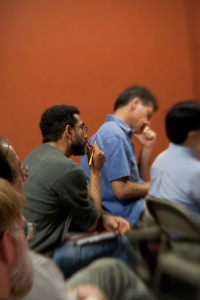
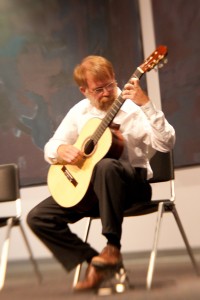
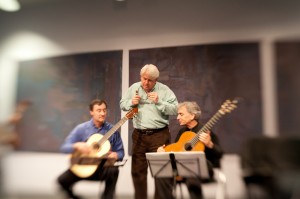
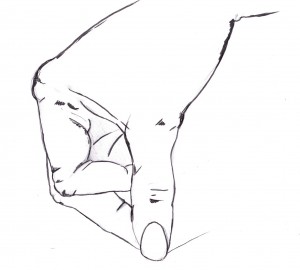
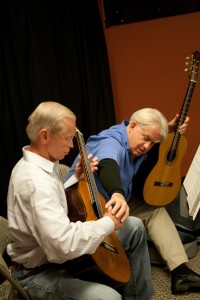
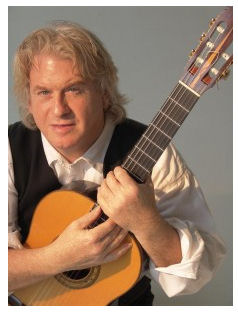





Scott,
I’d be interested in group workshops/classes. I have been studying the classical guitar for a little over a year with private instruction and think group classes would complement this. I think there are many topics that would lend itself well to a group setting. Please add me to the mailing list.
Also another friend & I are considering attending your concert this Sunday. Is it possible to drop a check off with you at your studio prior as it is probably late for mail & I am less comfortable with the security of Pay Pal.
Debbie
Debbie,
Sounds great – yes, that’s why I’m offering group classes, often ideas get clarification with the group dynamic, and they’re fun!! Don’t worry about the check – I’ll hold two tickets for the Sunday concert at the door for you. Oh, Debbie – don’t forget to subscribe so you’ll get updates on the classes…..
Scott
Scott,
I am very interested in your Performance Anxiety workshop depending on the dates. Would you let me know when you have determined time and date?
Thanks,
Allan Stults
Eugene
Allan,
Thanks for your inquiry – I’m planning another workshop for this spring. First I’d like to hold a video conference meeting for those who’d like to know more about the subject. Would you like to be included in that introduction? Also, would you be traveling up to Portland or attending remotely?
Scott
Scott,
I’d very much like to be included in the video conference and I would travel to Portland for the sessions.
Allan